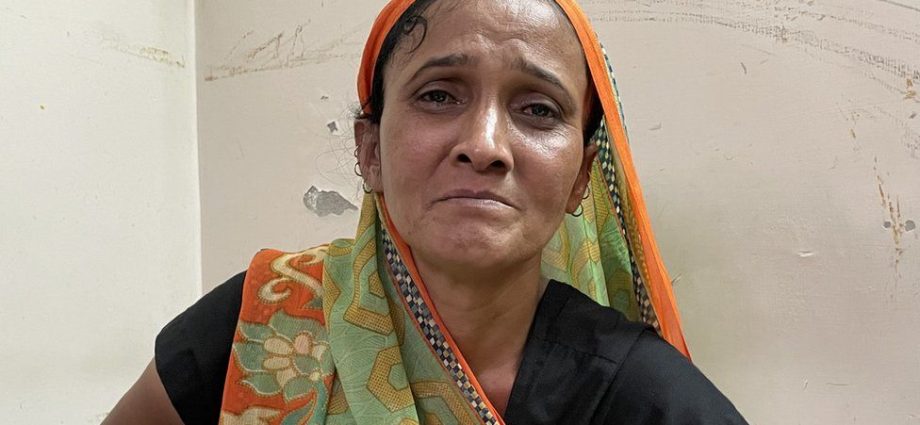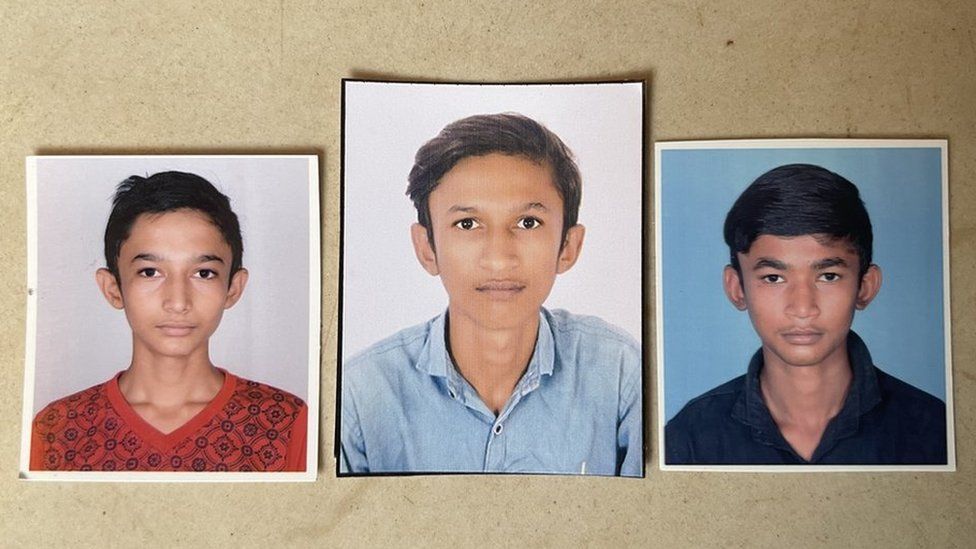
On Sunday evening, Chirag Mucchadiya, 20, and his brothers, Dharmik, 17, and Chetan, 15 went on an outing.
They told their mother Kantaben they were going to “julto pul”, or hanging bridge – a historic colonial era suspension footbridge, which had reopened just a few days earlier, after months of repairs.
It was the week of Diwali festivities. Schools were off, and many families had the same idea as Chirag and his brothers.
They bought a ticket -17 rupees ($0.21) for adults and 12 for children – and walked across the 230-metre (755ft) bridge.

Nitin Kavaiya was also there, along with his wife, and his two daughters – one aged seven, and the other a seven-month old infant.
The family posed for photos, including selfies. At around 18:30 local time they got off the bridge and sat on one of the banks of the Macchu river.
“It was very crowded on the bridge. I think there might have been 400-500 people on it,” says Nitin.
“I went and told the people selling tickets that they should reduce the crowds. I don’t know what they did about it.”
Ten minutes later, as he bent down to give his baby daughter a sip of water, he heard the sound of shouting and screaming.
The bridge had snapped, closer to the other edge of the shore, its metal walkway dangling on both sides.
“I saw people slipping into the water and they didn’t surface after that,” he says. “Others were clinging on to parts of the bridge trying to stay afloat. Many of us tried to help whoever we could.”
At least 141 people were killed. Chirag, Chetan and Dharmik were among them.
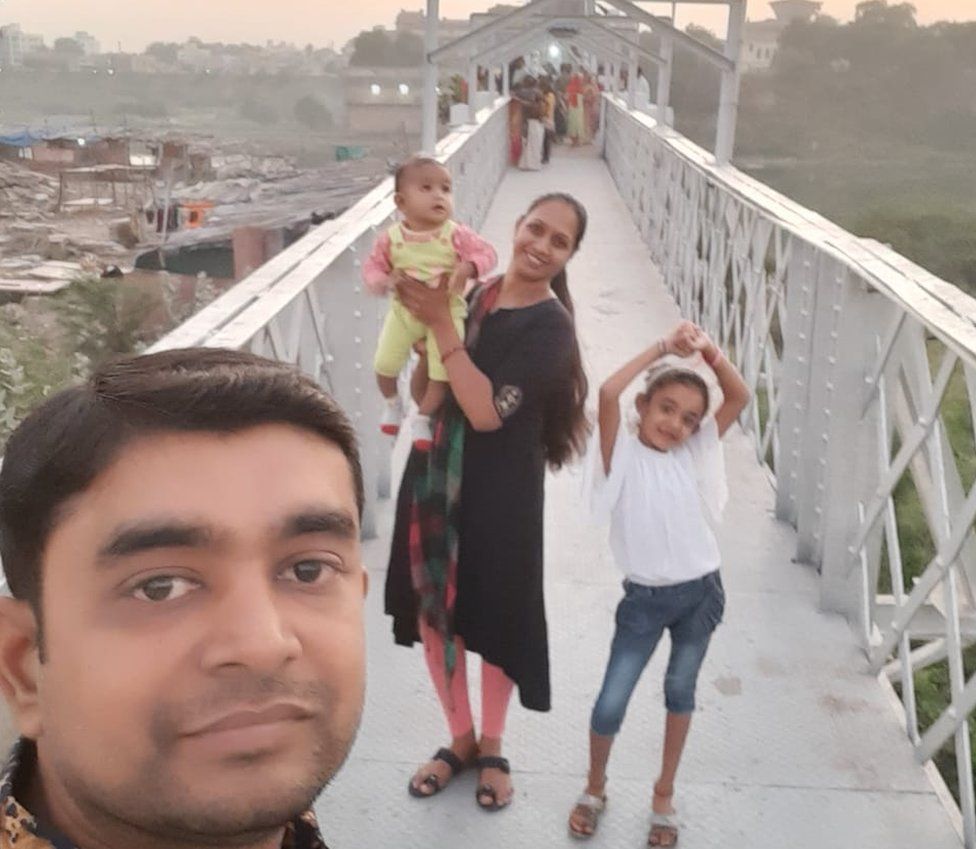
Back at the brothers’ home, one of their friends told their mother, Kantaben, that the bridge had collapsed.
“I started calling my sons, but I couldn’t get through,” she says. “I was very restless and began pacing up and down my house.”
Her husband Rajesh rushed to the scene. Then he started doing the rounds of hospitals. At 23:00, he found the bodies of Dharmik and Chirag at the Morbi Civil Hospital.
In the darkness of the night, the police, local officials, disaster response teams and military personnel continued their search for survivors, and the bodies of the dead.
At 03:00, Chetan’s body was also found. At the Mucchadiya home, a steady stream of mourners began to visit.
“We’ve lost all our sons, our everything,” Kantaben says. “What do we have now? My husband and I are all alone.”
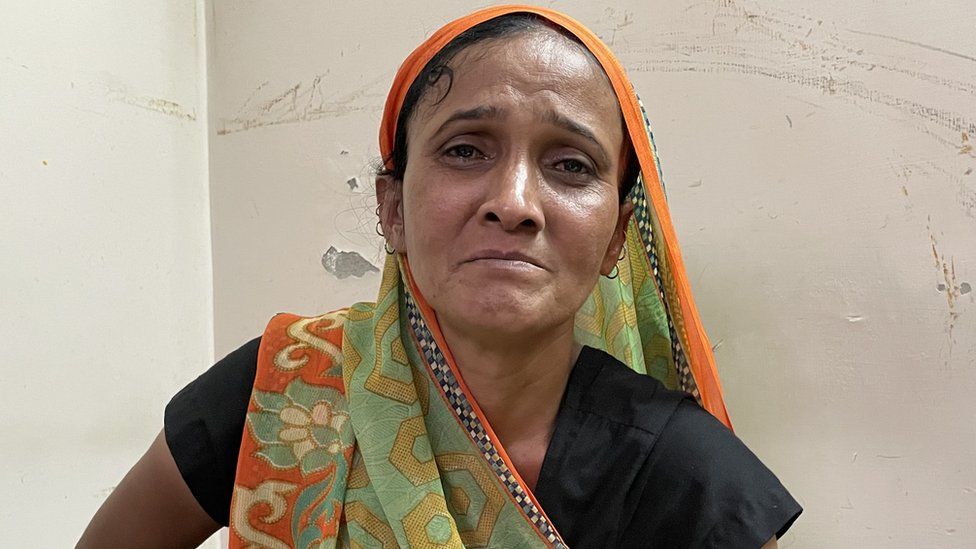
Chirag, 20, worked in a factory making spectacles. His earnings, along with what his father Rajesh makes working as a driver, sustained the family.
“Chirag was a very nice person. He listened to everything I said. And I also tried to give him whatever he asked for,” Rajesh says.
Dharmik would have been 18 on 14 December. He’d begun to look for a job. “He was very mischievous. We had a lot of fun together. Now they’re all gone,” his father says.
“He loved tel paratha (fried flatbread) and always wanted me to make it for him,” his mother adds.
Chetan was the youngest and was in the tenth grade at school. Rajesh describes him as a “master at studies”.
They proudly display passport size photos of their sons, which appear to have been taken a few years ago, when they were younger.
“Whoever is responsible for my sons’ deaths should be punished,” Kantaben says. “They should rot in jail for the rest of their lives. They should be given the death sentence.”
Rajesh adds: “We want answers. And we want justice.”
This video can not be played
To play this video you need to enable JavaScript in your browser.
There are many families who’ve lost more than one member in the collapse.
Nine people have been arrested so far, including the ticket sellers, security guards and managers of Oreva, the company which renovated the bridge.
Oreva has not responded to questions about the collapse. Some are asking if top-level managers in the company will also be investigated.
Many on the ground are also questioning the role of civic officials – asking if safety checks were done before the bridge was reopened.
“Whenever I close my eyes now I only see the visual of the collapsed bridge, and hear the voices of the people who were plunged into the river,” says Nitin.
“I tore the ticket stub I had in anger. And it’s not just me – the whole town is in grief and anger.”
Rajesh, meanwhile, calls for a “proper investigation”.
“Otherwise,” he says, “people will keep dying like my children did.”
- Additional reporting by Aakriti Thapar and Sanjay Ganguly
-
-
13 hours ago
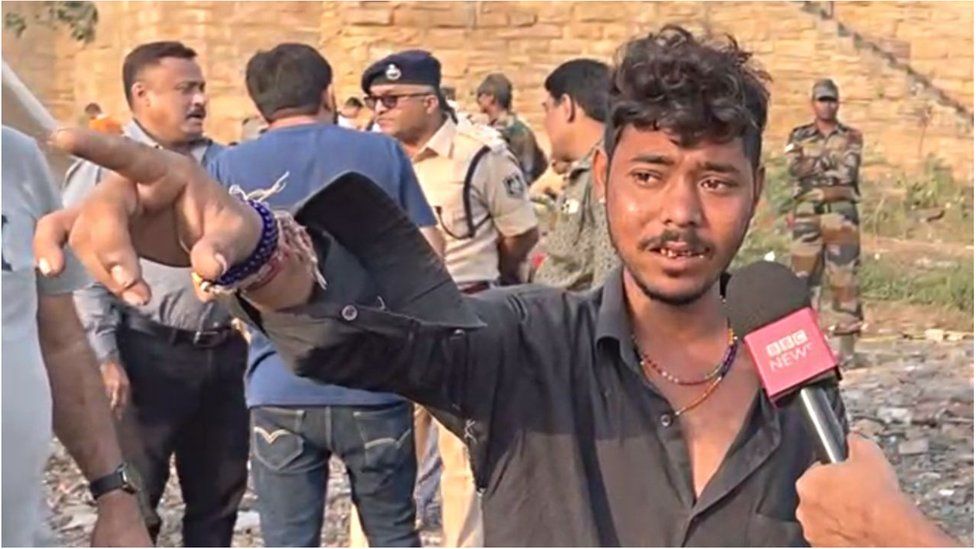
-
-
-
16 hours ago
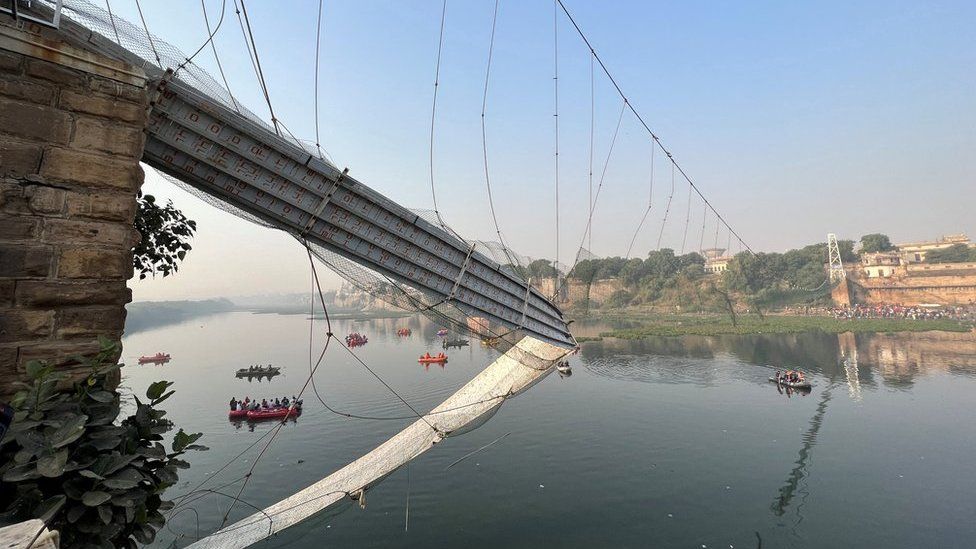
-
-
-
4 hours ago
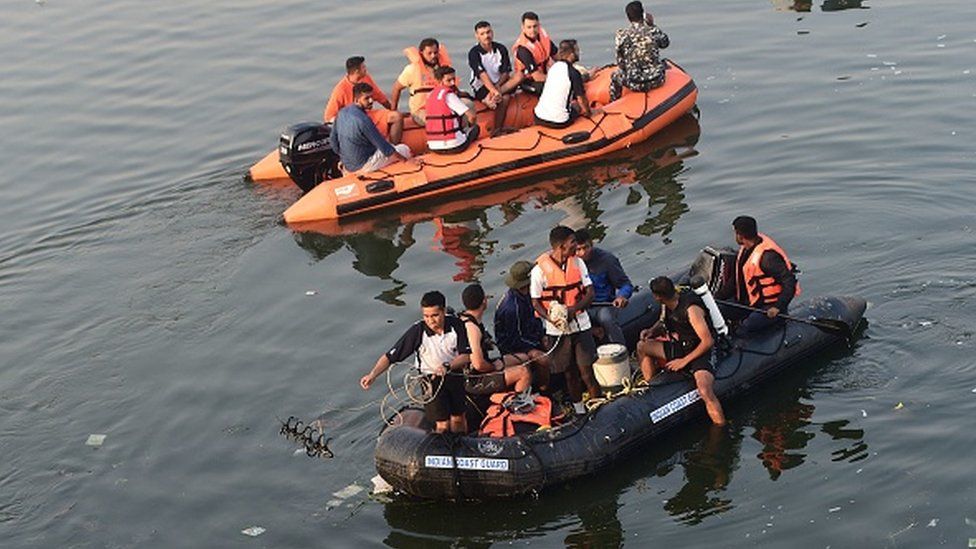
-

